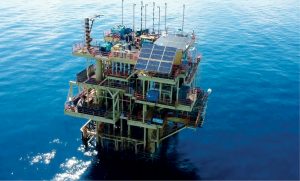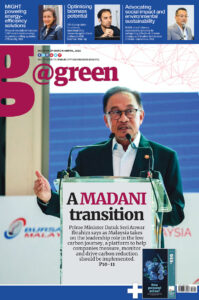The Covid-19 pandemic has affected different sectors differently. With the stringent regulations placed by the government to curb the spread of the virus, people have to adapt to a whole new experience both personally and professionally.
Sharing the experience from the oil and gas sector was Dr Kenneth Gerard Pereira, the founding Managing Director of Hibiscus Petroleum Bhd, Malaysia’s first SPAC with oil and gas assets in Malaysia, Australia and the UK. In a podcast with BFM Radio, Pereira shared the pandemic had impacted the industry in several ways.

“Oil and Gas platforms are very congested areas. So you know, all the standard operating procedures (SOPs) on physical distancing require a special kind of adaptation.
“We have maintained business continuity, mainly because our people have been very committed. When they go offshore to work, they spend 20 consecutive days offshore, most of them, and they end up having to do 14 days in quarantine.
“We create a green bubble for them before they go offshore. We test the workers a couple of times with normal testing to ensure they’re not carrying the virus. Then, when they go offshore, we try to maintain a reasonably safe and healthy environment,” he explained.
Pereira stated that the experience had not been easy. There were cases where people had gone offshore with infection, but the company quickly got them back onshore as soon as possible.
“From the health and safety perspective, a lot of people were impacted. People working at the coalface sacrificed a lot,” said Pereira, adding many of Hibiscus Petroleum’s offshore workers had not seen their families for a long time due to the inter-State travel ban.
On supply and demand
On the business side, he said the oil and gas market, in terms of the volatility of crude prices due to the supply and demand factors, was also impacted by Covid-19.

“I would say it’s an interesting phenomenon on the supply side. Everybody has been spending time at home. We’ve had time to reflect on what’s important in life. Health has become very important for those close to us and ourselves etc. And, because of that, people have been looking at the environment. What can we do more for the environment?”
He mentioned the whole climate change movement throughout this pandemic has gone up a notch or two. People were now moving to discuss the climate disaster and the climate emergency starting from climate change. He believed people have begun to consider how the environment could be better from a health and safety perspective.
“And because of that, they’ve been moving their investments from fossil fuel investments into renewable investments, causing maybe a tightening of supply. And oil prices now remaining a little bit stable, perhaps even trending up. So, that’s happening on the supply side.“And because of that, a lot of oil companies, in Europe particularly, were pressured to consider if they want to be in the fossil fuels business.
“On the demand side, of course, aeroplanes are not flying, cars are not on the road. So demand has been soft. But OPEC and their alliance partners have been very disciplined to maintain and keep to quotas.
“Because of that there is some balance in the oil and gas market, with some reasonable crude oil prices being achieved.”
On transition to green energy
When asked about Hibiscus Petroleum’s plan to move into a more clean energy profile, Pereira said: “On the sustainability part, going into a green energy space, we are making a lot of effort.
“We are going to do things which are complementary to our business. We’re not going to pivot and go into photovoltaic solar panels or something like that. We’re not going to go into wind turbines. We’re not going to plant trees. We’re going to do stuff that is complementary to our business to make sure that we decarbonise our own business.
“Because going on to 2050, when everybody says we’re going to be nett-zero and all of it, 50 per cent of the energy mix in the world is still going to be fossil fuels, oil, gas and coal. In the best scenarios, it will be 40 per cent,” he said.
Pereira highlighted that the important thing was to ensure that 40 per cent of the global energy mix was also clean. He revealed Hibiscus Petroleum was focusing on that initiative and looking at technologies that will clean up its type of business. — @green










